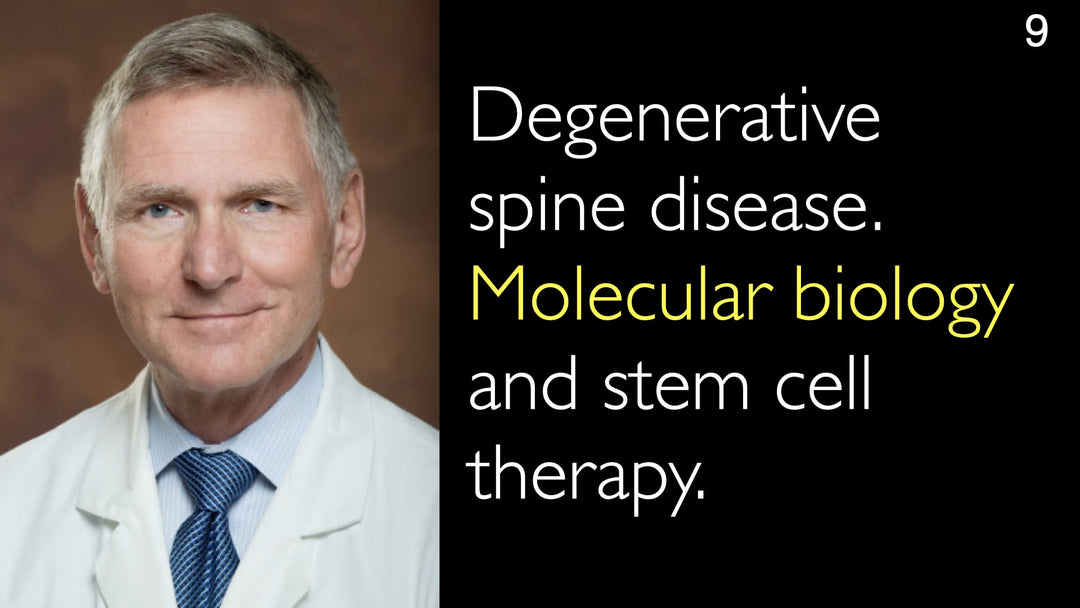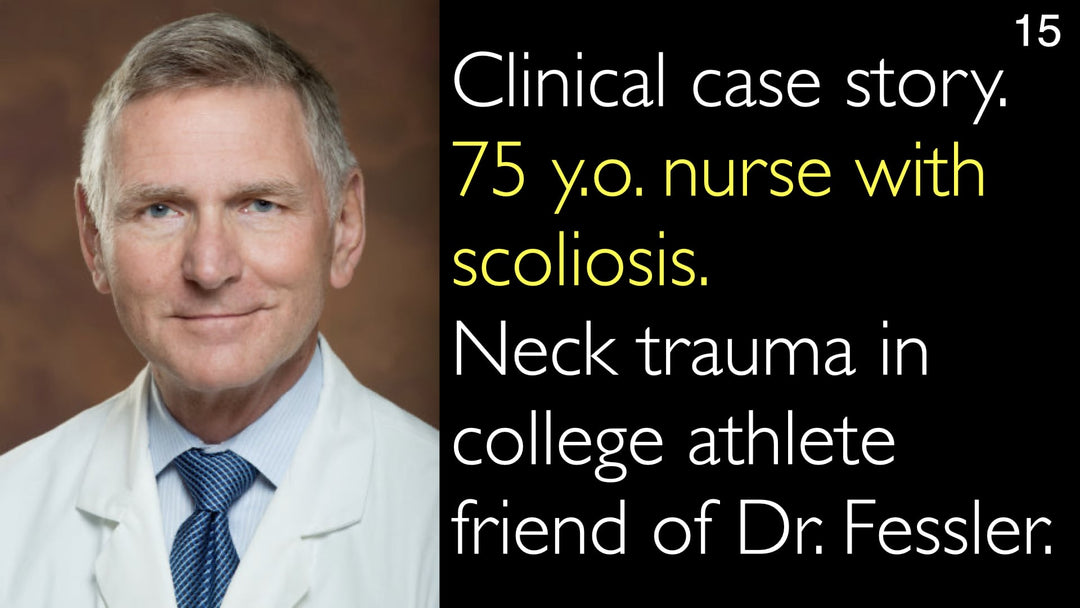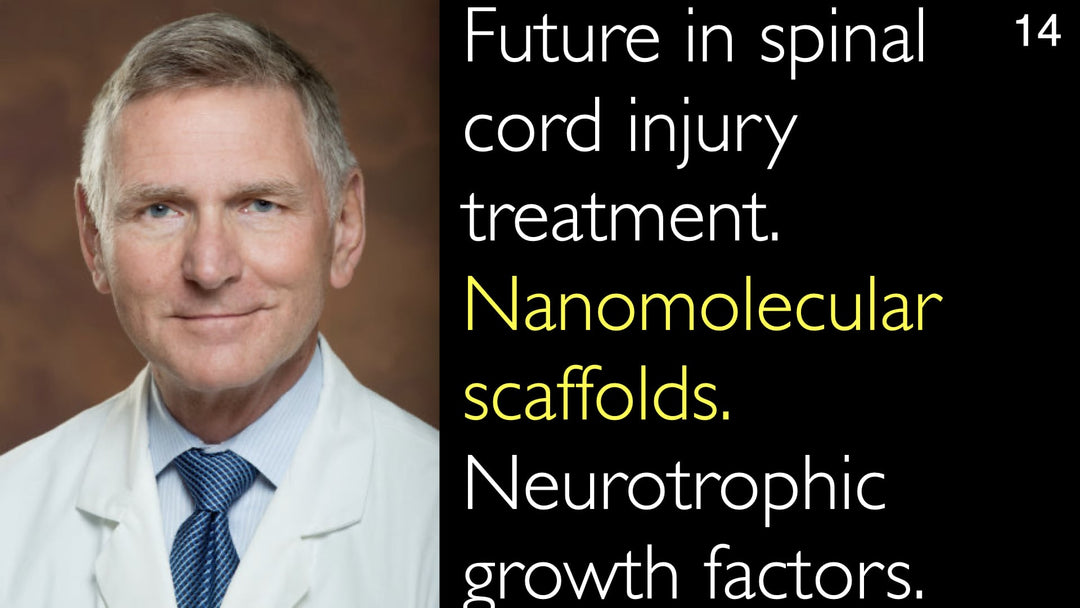Leading expert in spine surgery, Dr. Eric Woodard, MD, explains how to decide between surgical and non-surgical treatment for back pain. He details the three primary indications for spine surgery, including progressive neurological deficit and bowel or bladder dysfunction. Dr. Eric Woodard, MD, emphasizes that most back pain is lifestyle-related and can be managed with conservative treatments like physical therapy and anti-inflammatory medications. He also provides key advice on preventing chronic back problems through core fitness and maintaining a healthy weight.
When to Consider Spine Surgery for Back Pain: Indications and Alternatives
Jump To Section
- Common Causes of Back Pain
- Three Key Indications for Spine Surgery
- Non-Surgical Back Pain Treatment Options
- Strategies for Preventing Chronic Back Pain
- The Importance of a Medical Second Opinion
- Full Transcript
Common Causes of Back Pain
Back pain is one of the most common medical complaints worldwide. Dr. Eric Woodard, MD, confirms that it is the primary reason patients visit their primary care doctors in the United States. The etiology of back pain varies widely, from benign lifestyle-related musculoskeletal issues to more serious conditions like spinal tumors or infections.
Fortunately, Dr. Eric Woodard, MD, notes that the vast majority of back pain cases are benign and musculoskeletal in nature. These are often caused by strain, over-stressing joints or discs, or a general lack of physical fitness. Differentiating between these common causes and more urgent medical problems is the critical first step in any diagnostic path for back pain.
Three Key Indications for Spine Surgery
The decision to pursue spine surgery is not taken lightly. Dr. Eric Woodard, MD, outlines three primary categories that justify surgical intervention. The first indication is a progressive neurological deficit, such as numbness, tingling, or weakness caused by nerve compression from a slipped disc or spinal stenosis.
The second, and most urgent, indication is the development of bowel and bladder dysfunction. Dr. Eric Woodard, MD, emphasizes that this is a surgical emergency, as delayed treatment can result in permanent loss of control. The third and most common category is severe chronic pain that persists despite extensive non-surgical treatments.
Non-Surgical Back Pain Treatment Options
Conservative therapy is the first line of defense against back pain. Dr. Eric Woodard, MD, recommends a short period of rest—only one to two days—for acute pain, followed by the use of anti-inflammatory medications like ibuprofen or naproxen. Prolonged bed rest is strongly discouraged as it can lead to other complications.
Staying active is crucial for recovery. Dr. Woodard advises beginning flexibility and fitness exercises soon after the initial rest period. This active approach is often done under the guidance of a physical therapist and is beneficial for the vast majority of patients with musculoskeletal back pain, helping them avoid surgery altogether.
Strategies for Preventing Chronic Back Pain
Prevention is a powerful tool for avoiding chronic back problems. Dr. Eric Woodard, MD, highlights several key strategies. Maintaining an ideal body weight is essential to avoid over-stressing spinal structures. Excellent posture and general physical fitness also play critical roles in spinal health.
Specifically, Dr. Woodard recommends focusing on core fitness for the lumbar spine and shoulder girdle fitness for the cervical spine. This balanced approach to fitness and flexibility, even in older age, helps prevent repetitive stress injuries and maintains stability across the spinal structures, reducing the risk of pain that could lead to surgery.
The Importance of a Medical Second Opinion
Seeking a medical second opinion is a wise step when considering spine surgery. Dr. Anton Titov, MD, discusses this with Dr. Eric Woodard, MD, as a way to ensure a diagnosis is correct and complete. A second opinion from an independent senior spine surgeon can provide clarity and confidence in the chosen treatment plan.
This is particularly important given that back surgery success rates are not 100%. A second evaluation helps confirm whether surgical options like treating spinal stenosis or a slipped disc are truly necessary or if further conservative management is possible. It is a critical part of making an informed decision about one's health.
Full Transcript
Dr. Anton Titov, MD: Back pain is the most common complaint in medicine. How to determine when conservative treatment can help a patient with back pain? How to decide when back pain requires spinal surgery to treat the cause of pain? How to treat back pain without surgery? What are three main indications for back pain surgical treatment?
A leading spine surgeon shares his experience in choosing the best treatment method for different causes of back pain. Back pain treatment: surgery or not? How to decide if surgery can solve your back pain problem.
Deciding on surgery for degenerative disc disease is a complicated matter. The truth about back surgery is that often it requires more surgery because scar forms and the spine degenerates further. Should you have back pain treatment surgery or not?
The decision to pursue surgery is based on three main factors. First, progressive neurological deficit is developing because of a slipped disk, spinal stenosis, or spinal tumor. Second, bowel and bladder dysfunction occurs. This is an emergency situation for spinal surgery.
The most common indication for spine surgery is severe chronic ongoing pain. Medical second opinion confirms that degenerative disc disease diagnosis is correct and complete. Patients choose back pain treatment surgery or not, depending on the duration of pain.
Medical second opinion also helps to choose the best treatment for slipped disk problem and spinal stenosis. Seek medical second opinion on back pain and be confident that your treatment is the best. When is it a good idea to have back surgery?
Get medical second opinion for step-by-step instruction on making a good decision about back surgery. There are several back pain surgery alternatives. Conservative therapy should be tried first. Bed rest should happen for only a few days.
Ibuprofen and other NSAID medications should be tried before deciding on back surgery options. Because back pain surgery success rate is not 100%, back pain treatment should start from non-surgical options. It is wise to attack back pain first with medical treatment.
Getting medical second opinion from an independent senior spine surgeon helps to decide if surgery might help to treat spinal stenosis and back pain. Should you have back pain treatment surgery or not? It depends on the causes and severity of back pain.
Dr. Anton Titov, MD: I have back pain. My back hurts. I have pain in my neck. Should I have surgery for my spinal problem? I have a slipped disk. These are the most common complaints in medicine.
What should a person who has back pain do? What kind of a diagnostic path should he or she follow? How to make sure that the treatment for back and neck pain is appropriate and timely?
Dr. Eric Woodard, MD: Back pain is one of the most common ailments that afflict patients today in modern medicine. In the United States, back pain is the most common reason why patients come to their primary doctors. The intensity of treatment, however, depends on many things.
Generally, the severity and the duration of the back pain. Treatment methods for back pain also depend on its association with other factors, such as fever or signs of infection, trauma, or history of trauma. Other medical co-morbidities may relate to the etiology of the back pain.
Fortunately, the vast majority of patients with back pain have lifestyle-related, benign back pain that almost universally can be treated with exercise, flexibility, and strengthening.
Dr. Anton Titov, MD: What are the options for the person who is considering surgery or is advised to have surgery? How can a person with back or neck pain ensure that the surgical treatment is indeed appropriate?
Dr. Eric Woodard, MD: The cause for the recommendation for surgery could be musculoskeletal-related, such as with a slipped disc or spinal stenosis. Suggestion to have spine surgery could also be due to one of more urgent causes, such as following trauma, such as a fracture, or blood clot, or due to a tumor or due to an infection.
Pretty much regardless of the cause for recommendation to have spine surgery, the following decision-making applies. Almost universally the decision to pursue surgery falls into one of three categories.
First, the patient is developing a progressive neurological deficit. The spine structures that cause back pain are in immediate proximity to the nerves, the spinal cord and spinal nerves. Not infrequently, many of the ailments that cause back pain can also cause spinal nerve compression or spinal nerve irritation.
In some cases this can lead to numbness, tingling, or even weakness. That is generally one of the primary causes for us recommending something as aggressive as surgery.
Secondly, in the cervical area or the thoracic area, spinal cord compression or irritation can cause progressive weakness that also involves bowel and bladder dysfunction. This urgent situation can be due to a variety of factors.
That is a very urgent situation because if treatment is not initiated quickly enough, permanent loss of bowel and bladder control can occur. This is true even with the best of treatment and the best of surgery.
Here is the last, the third reason for spine surgery. This is the most common category for recommending spine surgery. It is patients who have severe chronic ongoing pain. Back pain and neck pain are not responding to many non-surgical treatments.
Dr. Anton Titov, MD: In the latter category, what kind of conservative treatments do you try in your practice before the patients are indeed suitable for back spine surgery?
Dr. Eric Woodard, MD: As I mentioned, the vast majority of musculoskeletal ailments are lifestyle related. Most back and neck pain is caused by the strain of musculoskeletal spine structures and the pull of a person's back. Or back and neck pain are due to over-stressing of a joint or a disc due to general weakness or a lack of physical fitness.
One of the first things that we do is make sure that back or neck pain is not something more urgent or something more dangerous, such as a tumor, trauma, or infection. If the cause of back or neck pain confidently looks due to a more benign, lifestyle or musculoskeletal-related problem, then we do this thing.
First, we ask our patients to have a short period of rest and take some anti-inflammatory medications, such as aspirin, or naproxen, or ibuprofen. This suggestion applies to patients with an acute onset of back or neck pain.
Thereafter, staying active has been shown to be much superior to prolonged periods of bed rest, such as two to four weeks. In the old days, you go to bed for a month and almost invariably you developed another complication from going to bed. Now at most it is maybe one or two days of rest.
This short rest period is followed by active beginning of flexibility and fitness exercises. Very frequently that is done under the guidance of a physical therapist. This method in the vast majority of cases is beneficial.
Dr. Anton Titov, MD: What can a person do to prevent injury to the spine? Specifically, how to prevent damage to vertebral disks? How to prevent chronic back pain and problems that might require spine surgery?
Dr. Eric Woodard, MD: The most common causes of chronic back pain are due to musculoskeletal elements. Certainly general medical fitness and general nutrition are important. But also important is maintaining an ideal body weight, so as to not over stress these structures.
It is important to maintain excellent posture and to maintain fitness. Especially core fitness for the lumbar spine, shoulder and upper shoulder girdle fitness for the cervical spine. Pelvic and buttock fitness for the lower lumbar spine is very important.
Fitness and flexibility, even into older age, is extremely important to maintaining balance across these structures and prevent repetitive stress injury.
Dr. Anton Titov, MD: Back pain treatment: surgery or not? Video interview with leading spine surgeon. How to decide if you need surgery for back pain? How to treat back pain medically?







